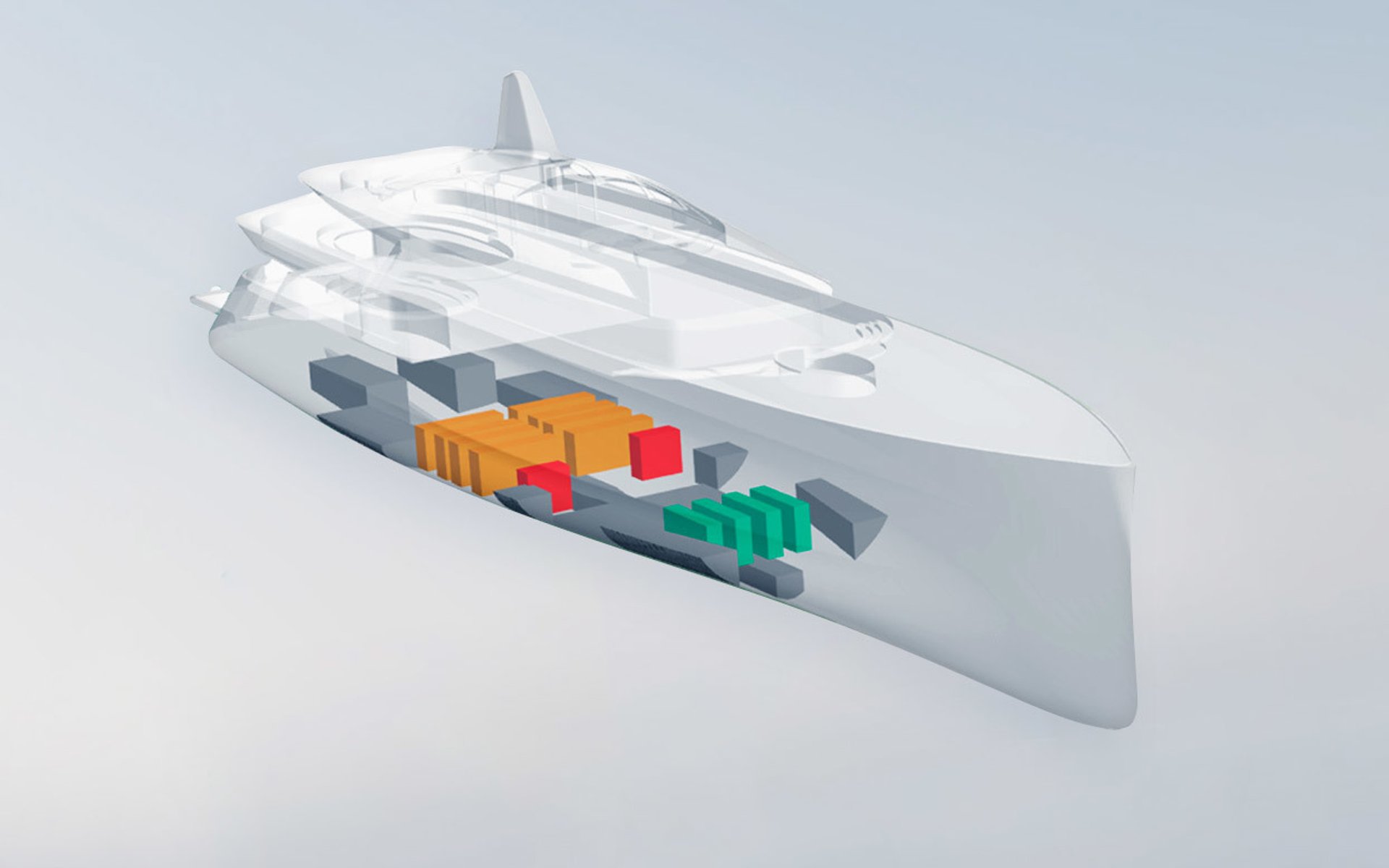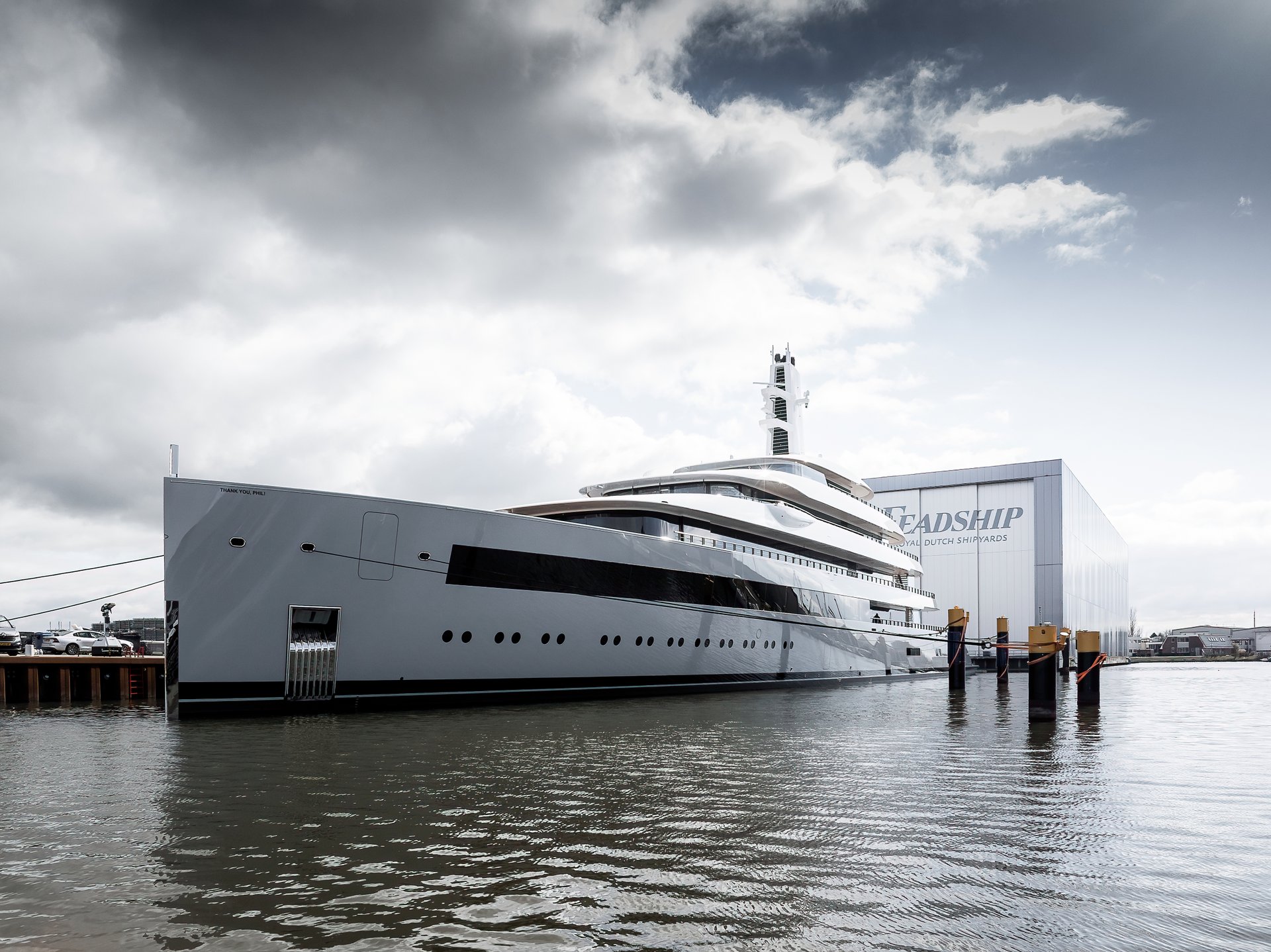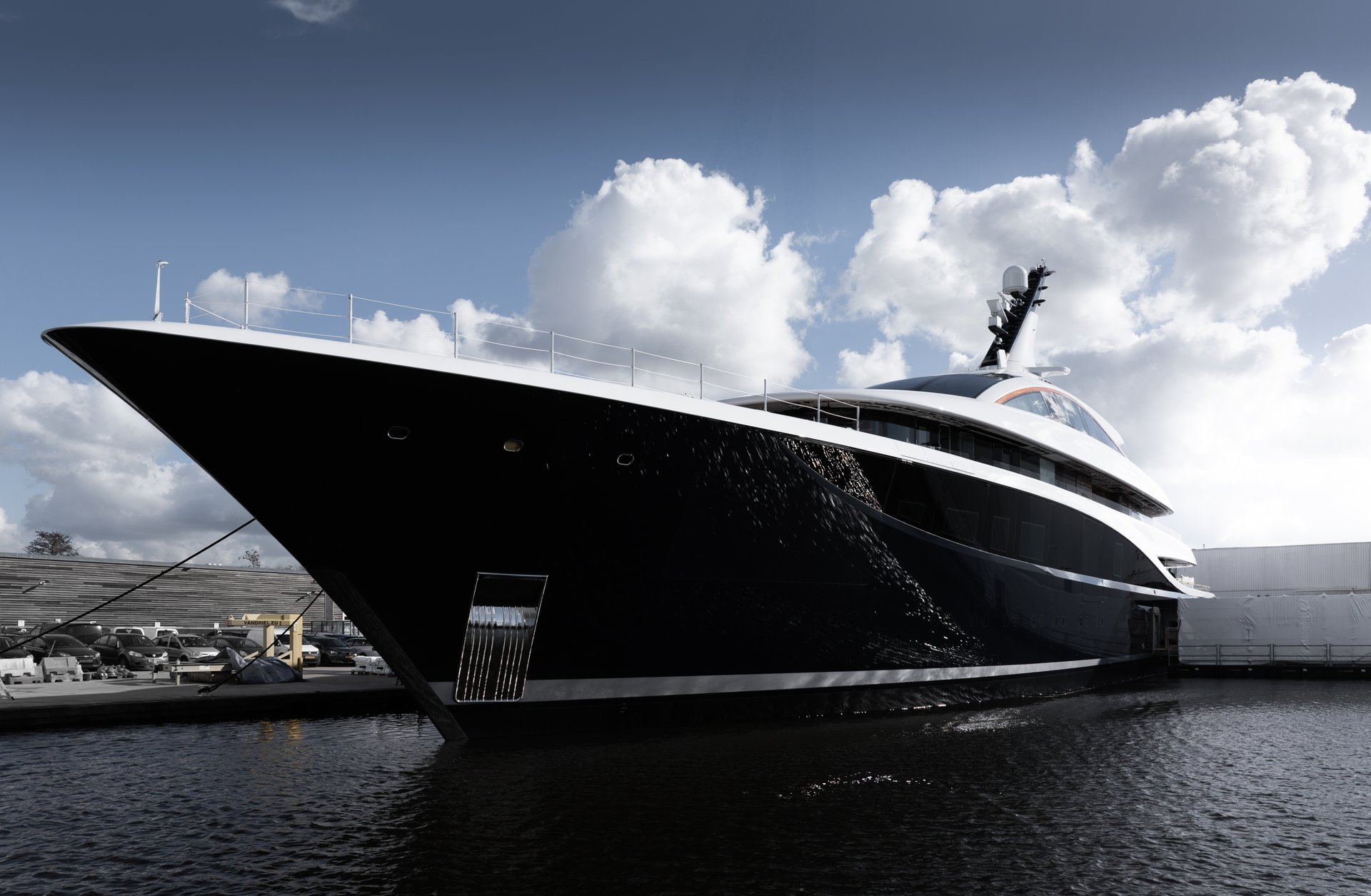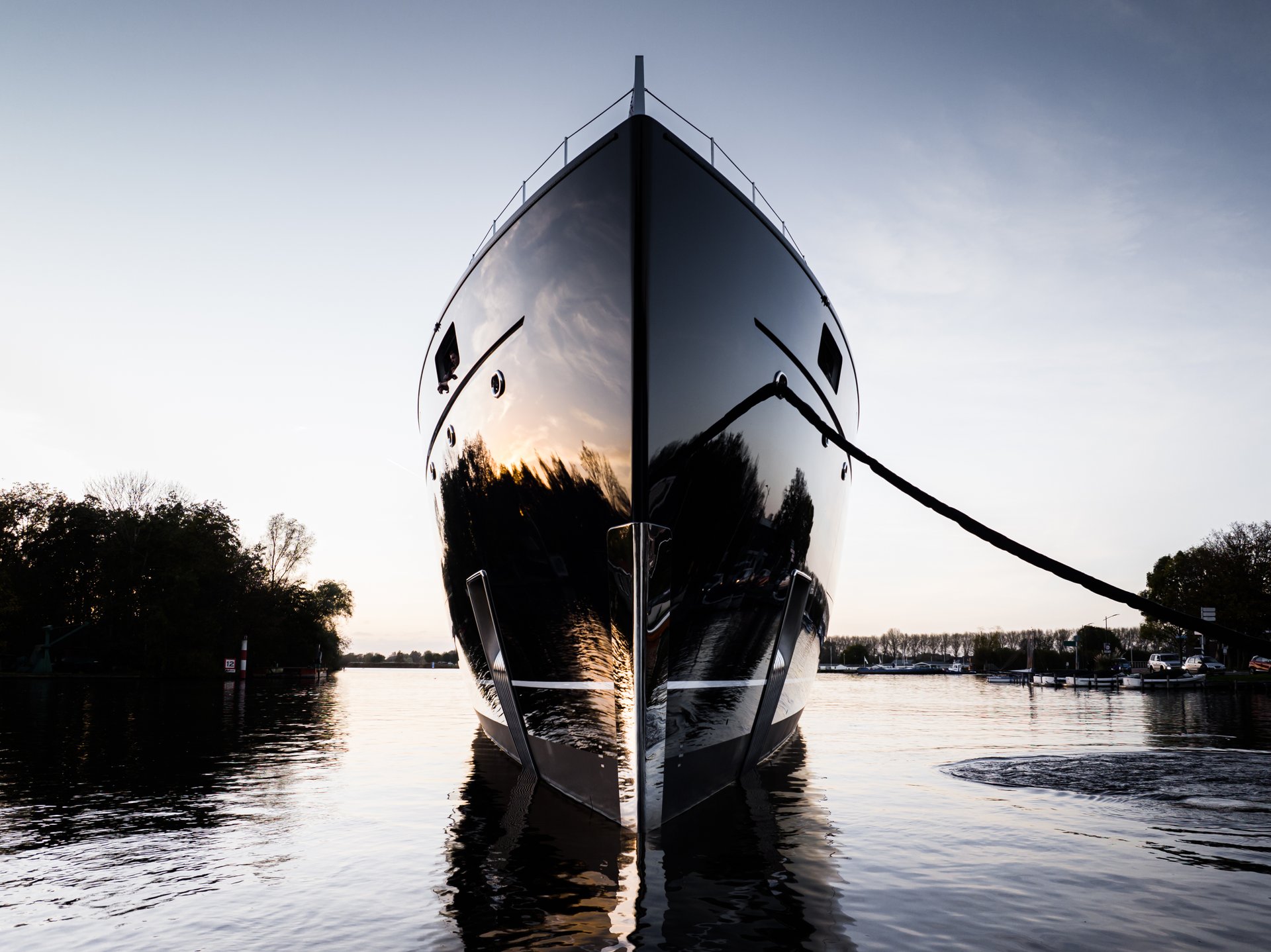A major milestone towards carbon neutrality
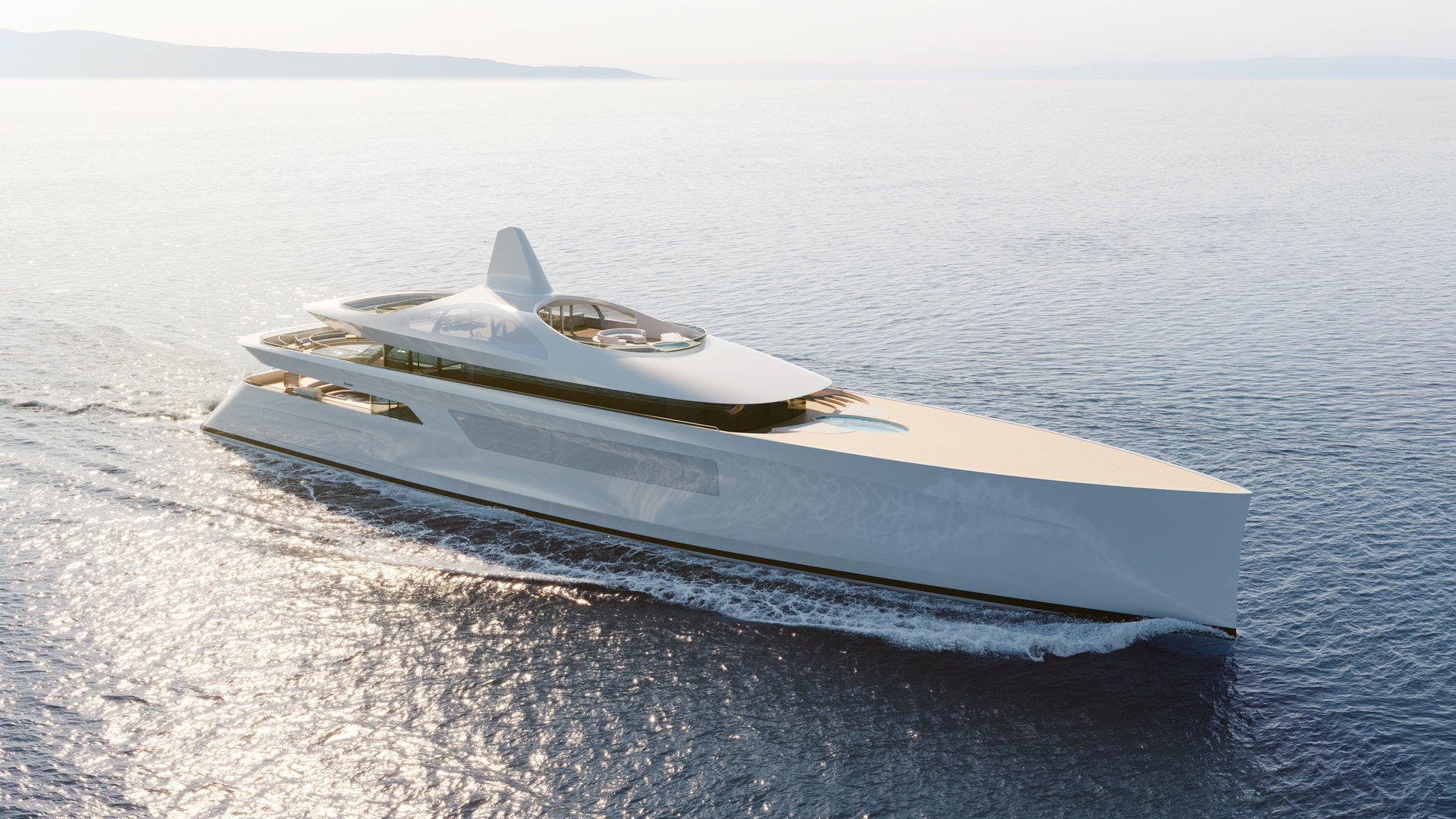
Sustainability is a key issue for the yachting industry and the world at large. Feadship is at the forefront of research into how to design and build yachts in the most eco-friendly way possible.
Our 81.75-metre Pure concept design in 2021 highlighted the very latest thinking on how owners and their guests enjoy their time on superyachts. With the cleanest possible architecture, it was conceived from the outset to be fully future-compatible with likely developments in propulsion and energy efficiency over the next decade.
Fuel for change
We’re excited that the progressive thinking that lies at its heart of the Pure concept is now a significant step closer to becoming reality after receiving approval-in-principle from the classification society Lloyds Registry for a so-called ‘agnostic’ fuel system. In other words, a system that can work not only with the fuels of today, but also those of tomorrow.
“This represents the second stage of our roadmap to building a carbon-neutral superyacht by 2030,” says Giedo Loeff, head of R&D at Feadship. “Measures such as exhaust gas after-treatment are now mandatory, while waste heat generation and electric systems for propulsion and hotel loads are mature technologies that have been installed on numerous superyachts. Hydrogen fuel cells for propulsion purposes are still a few years away and we have to look at other non-fossil options such as Hydrotreated Vegetable Oil (HVO), synthetic e-diesel and biofuels derived from biomass, production of which is being scaled up worldwide.”
This represents the second stage of our roadmap to building a carbon-neutral superyacht by 2030.
Built-in flexibility
The flexible system will underpin the next generation of Feadship yachts and allow owners to make maximum use of alternative fuels as they become increasingly available in the near future. Although research is ongoing in collaboration with key partners, we are already integrating dual- and single-fuel engines with fuel cell solutions into new-build projects, as well as for refits and conversions. These will be assessed using the Yacht Environmental Transparency Index (YETI) tool, which scores and compares yachts based on their environmental credentials.
The reason this is such a vital step forward is because fuel storage systems are integral to the structure of a vessel. Moreover, different systems have different impacts on the exterior design and interior layout. By accounting for those demands know, we’re able to future-proof our yachts and their owners’ investment.
“Our announcement is significant because as of now Feadship plans to build yachts with tanks and systems that are certified for a whole array of non-fossil fuels,” concludes Loeff. “Besides meeting the growing desire of our clients for carbon neutrality, it will help to minimise the environmental impact of our yachts wherever they may cruise in the world.”
The third step in our journey towards net-zero carbon, the integration of fuel cell technology into the design and build of Feadship yachts, is expected at the end of the decade.

